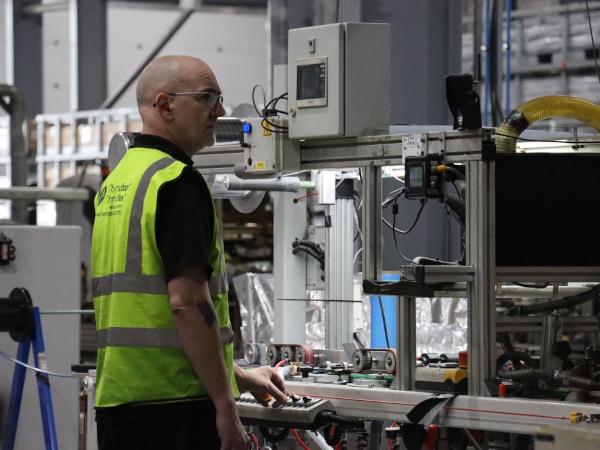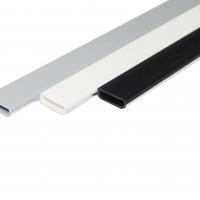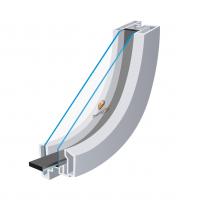
Date: 3 April 2024
On December 13, 2023, the government finally opened the consultation on the Future Homes and Buildings Standards. At the heart is a significant shift away from a ‘fabric first’ approach to improving energy efficiency and reducing carbon emissions, and towards mechanical services, such as heat pumps.
To say this was a missed opportunity would be an understatement. We know from the work we’ve done with our IGU manufacturing customers that many had prepared their operations for an expected increase in demand for triple glazing.
As a key supplier to the window industry, we have invested heavily in triple glazing, including new machinery and tooling, which will produce spacer bar in more thicknesses – ready for units with varying cavity depths.

And we know other suppliers – to varying degrees – had gone some way to preparing for more triple glazing. After all, we have been talking about it for long enough.
So, as an industry, we were as prepared as we were going to be, and this (apparent) last-minute decision to backtrack on the 0.8W/m2K U-value requirement for windows going into newbuild properties is an opportunity truly missed. Put it this way: do you think we are going to take the government seriously if/when they indicate they are going to lower U-values in the future?
Hot box
As it happens, all this will do is slow down the move to triple glazing. Demand will still increase – it just won’t happen as quickly as if the government had legislated for it.

Two things will ensure this is the case.
For the first, I would like to draw your attention to this paragraph in the consultation document:
“For new dwellings, the U-value of a window should be determined using one of the following: a) calculated using the actual size and configuration of the window; b) measured using the hot-box method set out in BS EN ISO 12567-1 for windows and in BS EN ISO 12567-2 for roof windows.”
In other words, the government is proposing to move away from the standard window configuration (1230x1480 open/fixed) to measure the U-value of windows, and to improve the accuracy of window modelling.
So, if your windows currently only just scrape a 1.2W/m2K U-value, and they are typically smaller than the previous standard window configuration, then you may need to incorporate triple glazing into your designs just to meet the current regulations.
The second thing is that we know from customers who supply products into the newbuild market that some developers are choosing to specify triple glazing in order to meet the target fabric energy efficiency rate without designing in more expensive insulation options. Furthermore, the triple glazed windows also act as a positive marketing tool.
And if one developer plans to go down this route, it won’t be long before others follow suit.
Red Herring
Don’t forget that the government had previously set 2016 as the date when new buildings should be ‘net zero’ – a ‘zero carbon home’ was defined as achieving a Level 6 of the Code for Sustainable Homes. In 2015, a year before it was due to come into force, the government scrapped this commitment.
In some ways I think the whole Future Homes Standard – and the expectation that we would have to move to triple glazing to meet U-values of 0.8W/m2K – has been something of a red herring.
There are many products on the market that are not made to the current building regulations, let alone fanciful improvements that we should have guessed would never to come to fruition.

There are glass units being sold today that don’t have the correct warm edge spacer bar, don’t have the correct depth of seal or sealant type, contain non-conforming desiccant and incompatible edge tapes that can degrade the unit’s integrity. This means U-values and energy ratings will not match specifications, as well as leading to premature failure of IG units that could have easily been avoided.
If we want to make a real impact on windows’ performance, and the long-term energy efficiency of buildings, we should start with getting the basics right. It will be difficult to confidently produce triple glazed units if our double glazed units are not up to standard due to use of cheap imported unproven components.
Talk to any one of our technical sales team, and they will give you an audit of you production methods and the compatibility of the components used.
 600450
600450














Add new comment